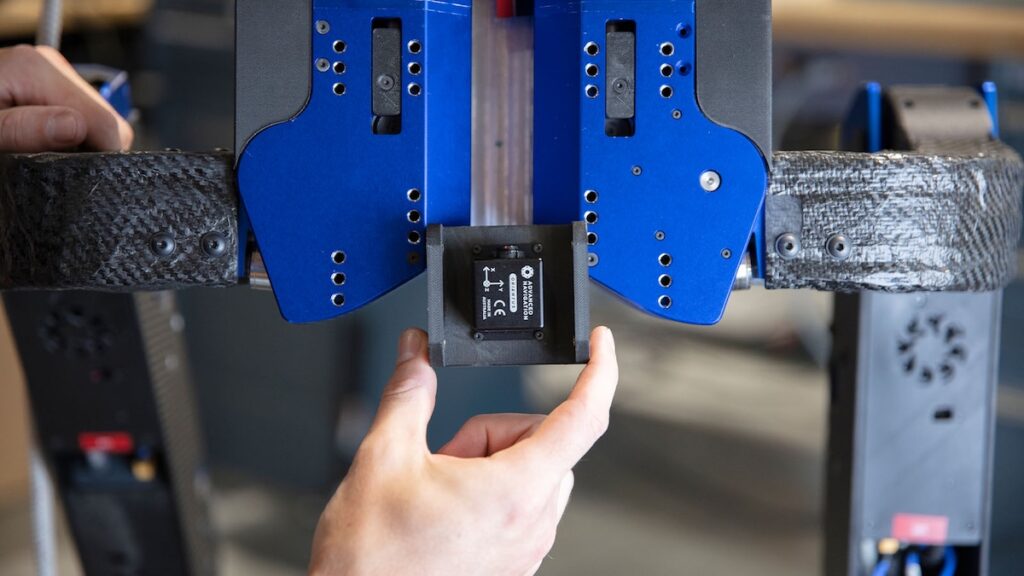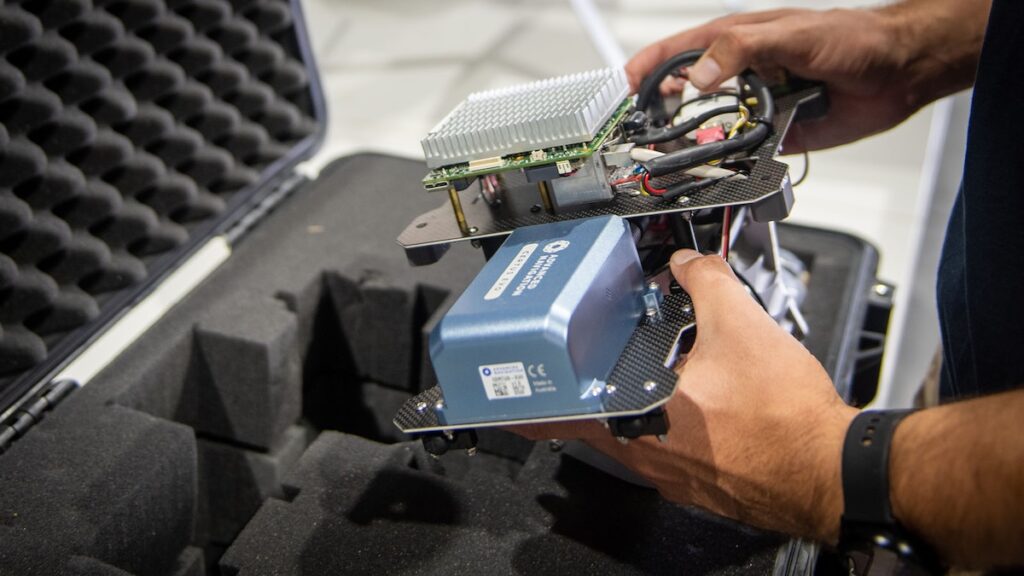Advance Navigation Discusses INS Integration | Unmanned Systems Technology (original) (raw)

Inertial Navigation Systems (INS) are critical for autonomous operations, offering precise navigation in GNSS-denied environments. Integrating these systems efficiently is key to unlocking performance and minimizing downtime.
Advanced Navigation’s INS solutions are engineered for easy integration, supporting diverse hardware and industry-standard protocols. In the tech article “Integrating Inertial Navigation Systems: What to Know” the company discusses the integration process and gives some useful advice on INS selection and integration for autonomous systems.
The article covers the following topics:
Why Ease of Integration is Critical
As autonomous systems continue to evolve, ease of integration is crucial for ensuring efficient operation. Inertial navigation systems (INS) are key components that require precise calibration and alignment, making their integration complex for many platforms.
Key considerations when choosing an INS include:
- Setup time: A well-designed INS reduces time spent on integration.
- Costs: Simplified installation lowers costs related to labor and technical resources.
- Reliability: Properly integrated systems ensure greater accuracy and stability in navigation.
Advanced Navigation addresses these challenges by providing comprehensive documentation and robust technical support, ensuring users can integrate their systems seamlessly.
Hardware Compatibility for INS Integration
Successful integration of an INS relies heavily on hardware compatibility. Advanced Navigation’s solutions are designed to support various industry-standard interfaces, making them suitable for a wide range of platforms. These include:
- Ethernet, CAN, RS-232, RS-422 – High-performance interfaces that minimize signal loss.
- GP IO cables – For flexible connections to peripherals such as external sensors and RTK GNSS systems.
- Ingress Protection (IP67) – Durability for extreme environments and demanding conditions.
By offering universal interfaces, Advanced Navigation ensures compatibility with third-party hardware and facilitates smooth integration into both new and existing systems.
SWaP Considerations: Size, Weight, and Power
For many autonomous systems, especially drones and compact vehicles, size, weight, and power (SWaP) are critical considerations. Advanced Navigation provides compact, lightweight INS solutions that can enhance flight stability and fuel efficiency for drones, and lower power consumption, extending mission duration and reducing the onboard power requirements.
Advanced Navigation also offers OEM solutions, allowing further customization for space-constrained applications.
Communication Protocols and Flexibility
Ensuring smooth communication between system components is essential. Advanced Navigation’s INS products support a variety of industry-standard protocols, such as:
Their proprietary Advanced Navigation Packet Protocol (ANPP) provides robust error checking and is designed for users who need precise control over their INS configuration. This flexibility allows for seamless upgrades or system modifications without compatibility issues.
Integration Tools and User Interfaces
Advanced Navigation simplifies the integration process with hardware evaluation kits and software development kits (SDKs). These tools include:
Evaluation kits with all necessary cables and accessories for installation and performance assessment.
SDKs with example source code for C/C++, Python, Java, and more, allowing for custom applications and performance optimization.
Additionally, their user-friendly web-based graphical user interface (GUI) provides real-time data on position, sensor performance, and system configuration options.
Support and Documentation
A key aspect of a successful INS integration is having access to comprehensive support. Advanced Navigation offers:
- Detailed documentation covering setup and troubleshooting.
- 24/7 technical support, provided by engineers with extensive product knowledge.
- Ongoing assistance to ensure smooth system operation.
Their commitment to customer support helps reduce the complexity of integrating their solutions into any platform.
Compliance and Lead Times
Advanced Navigation ensures its products meet international regulations and certifications, such as:
ITAR-free – Ensuring no export restrictions.
CE, RED, MIL-STD-810 compliance – Meeting environmental and operational standards for military applications.
Given potential lead times of up to 12 months, it is important to account for availability when selecting an INS solution.
For autonomous system developers, choosing an INS that offers ease of integration, comprehensive support, and flexibility is essential. Advanced Navigation provides tailored solutions that reduce complexity and improve performance, ensuring long-term success.
To explore the full range of Advanced Navigation’s INS solutions and learn how they can enhance your platform’s performance, read the full article on the Advanced Navigation website >>
